6 different kinds of agents and when to use them
Agents are being used in a very wide range of places. In this issue I layout 6 of the most common uses.
It has been an exciting week for me as I onboarded a new client. I’ve helping them with AI Agent strategy, which meant my newsletter is a few days later than usual but still jam-packed full of goodness!

Recap of topics covered in previous issues
Making AI Agents is designed to offer long-lasting content. Previously on Making AI Agents we have:
Checklist for making an AI Agent
Evaluating AI Agent quality with The Agent Company’s benchmark
Deepseek R1 language model
The huggingface agent course
Agents vs bots vs scripts
Different ways agents can be integrated into different products
Benchmarking agent performance with HuggingFace DABstep (450 tasks)
Deep Research preview
AI Agent workflow building blocks
Introduction to Model Context Protocol (MCP) and why it’s taken off like wildfire
38 new agent makers added to my list
Deep dive: attempting to replicate Deep Research experience using Google Gemini, ChatGPT, X.com Grok, and Perplexity, along with my experience trying to build a Deep Research agent with Relay, Make, n8n, SmythOS, Autogen and CrewAI.
The AI agent maker landscape
What kind of agent is best for you? Let’s dig into the different kinds, and how they’re useful.
At last count I know of around 100 agent maker solutions. Most will die. I see segmentation roughly as per this structure:
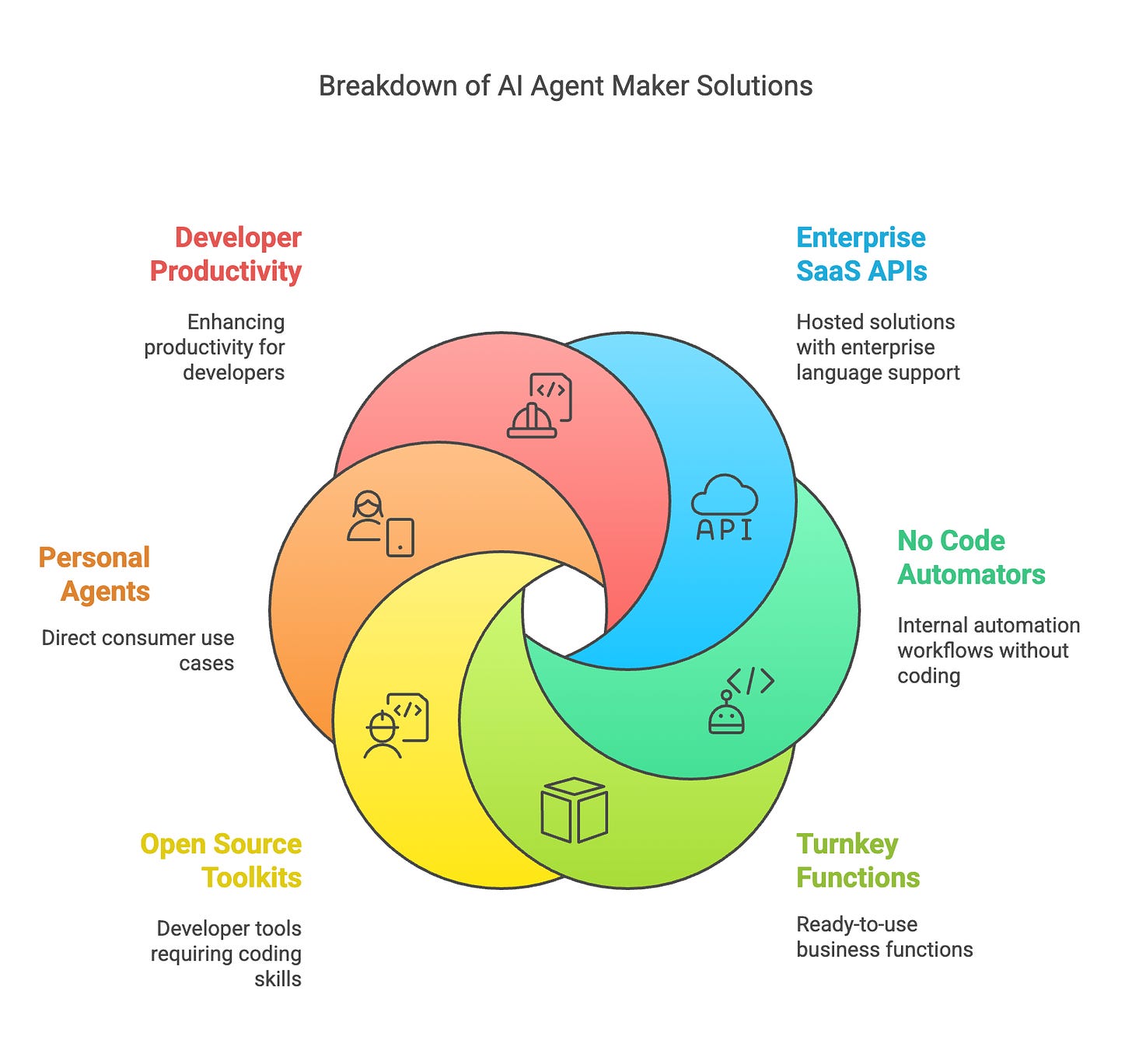
Enterprise SaaS APIs. Built-into major cloud vendors, these are programming toolkits for building agents into your business to service your customers.
No-code agentic business process automators (no code internal automation workflows)
Turnkey agentic vertical and business functions: these work "out of the box" as it were, ready to use with no design required.
Open source developer toolkits: mostly (but not exclusively) python. Usally requires at least being comfortable with the command line and ideally comfortable with running and writing python programs.
General Personal Agents: ChatGPT, Claude, Perplexity, and Manus
Agentic developer productivity: I carve this out because it’s by far the largest and most successful use of agents today.
Enterprise SaaS API : default Big Tech offerings
Enterprise SaaS APIs are managed solutions, offering support for a wide range of languages (vs Python only for many other agent makers).
They have all the quality aspects such as stable versioning, security, and a stack of value-added features like prompt asset management, tracing, etc. Amazon Bedrock Agents is an early leader in this.
🔮 Prediction: I expect enterprise customers to go with the default built-in agent solution the Big Tech companies offer.
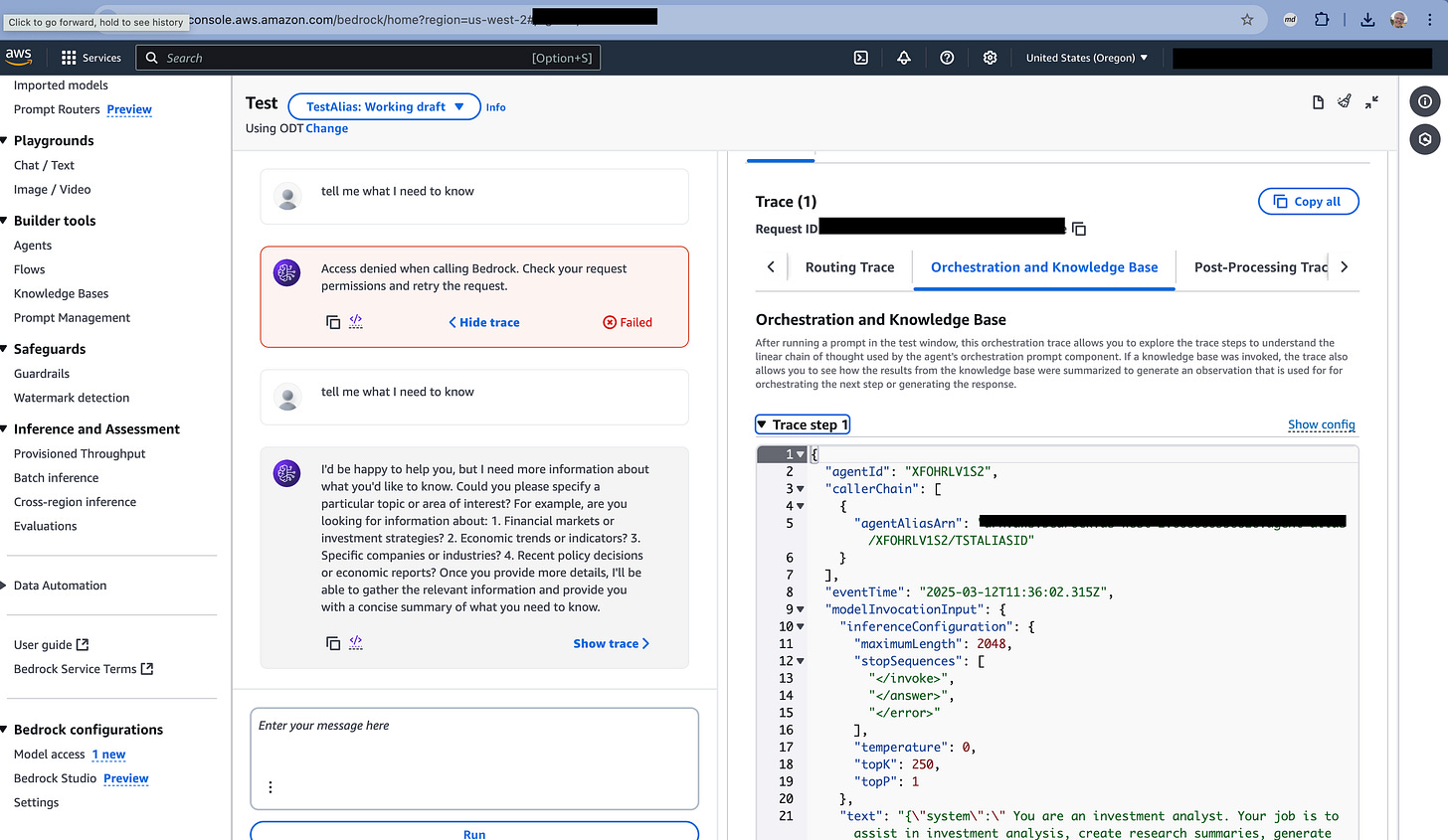
Amazon Bedrock Agents is a closed-source solution, deeply integrated into AWS with pretty impressive enterprise features including multi agent support. HOWEVER no access to the full gamut of LLMs (notably no access to OpenAI or Google Gemini and this is a serious problem IMHO)
Microsoft Autogen Studio is currently open source but I expect will become a core Azure offering enterprise quality features like security, resource management, control over data residency etc.
Google’s AgentSpace (early access as at March 2025) confuses me as it seems to be basically Deep Research For Your Docs (at least currently). That’s it for Google’s agent offering as it stands. Kinda feeble actually.
🔮 Prediction: one or two new brands will prevail in the Enterprise space such as crewAI. Some of those will end up being acquired by late adopter big tech like IBM and Oracle.
Custom agentic business process automators: internal workflow automation
These are for small groups of people to automate their work through point and click interfaces. For example:
N8n.io is very popular though it can’t do web search or scraping as-is without low level HTTP hackery
Note all of these have been covered in previous issues of Making AI Agents and are dozens more interesting ones to cover in future issues.
Agentic vertical solutions: prepackaged agent teams specialising for every vertical
🔮 Prediction: every vertical will have prepackaged agent solutions for their business, e.g. “as a real estate vendor I want to monitor competitor websites, identify new listings we don’t have and automatically add it to our database for record keeping and outreach”. These verticals might indeed be very niche, e.g. “electrical contract bidding for medium-sized construction business”
Agentic business functions
Cross-vertical. eg aomni for sales lead generation, customer support, etc. This is already an enormous market and you can expect every existing business function to offer agentic support, a bit like Salesforce Agentforce
Subsegment: in-app agents for every app (moving from from help => do). This is HUGE in the way that Intercom is huge. Intercom Fin is likely going to lead this. I cover this in more details in this previous issue
Open source toolkits
Open source is the most fertile ground for innovation. It’s a great place to do a number of things:
Learn how agents work
Try out the state of the art (SOTA) agent methods
Build in agents into your own software
Use agents for free
There are dozens and dozens of these, and new ones seem to sprout up every day.
🔮 Prediction: just like JavaScript frameworks, there will always be new ones, and there will be 2-3 that really dominate. I’ll be sharing my directory of these in time.
General Personal Agents
There are a handful of universal use cases emerging like deep research that tools like ChatGPT, Grok, Claude, Gemini, Perplexity, Manus (see below) etc will own. These are personal assistants that help individuals with their personal lives.
⚠️ Controversy: delegating too much of your own power to a personal agent can be extremely risky and there is a vocal audience that believes this is incredibly dangerous.
🎤 Opinion: there are proven, carefully managed ways to delegate privileges, so I see two simple ways:
Anonymous web scraping
Oauth-based explicit privilege sharing that is carefully managed and monitored by an identify provider (like Google or Microsoft).
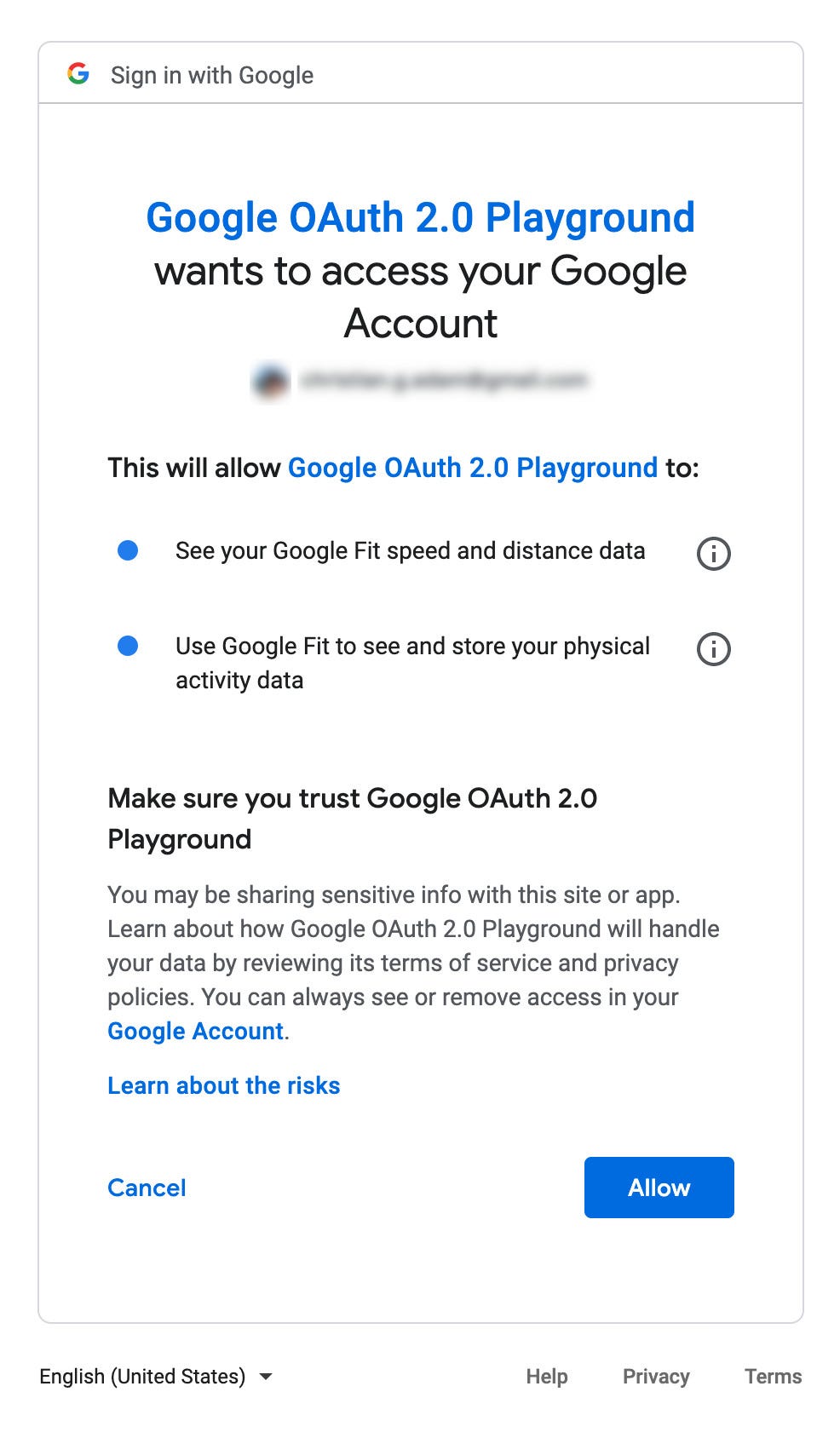
Agentic developer productivity
Top down / cloud first: Replit, Bolt, v0, Lovable, Databutton etc. You start with a prompt and the entire app (web or native mobile) can be created and refined with a plain-English conversation. I’ve tried them all and I personally use Replit the most as it’s the most integrated, for small tools, MVPs and prototypes.
Bottom up / local first: Cursor, Windsurf, Cline, etc. These are developer environments that have less guidance and less automation. Where Replit will automatically create databases and offer one click deploy, these bottom-up tools provide much more control over the software engineering process. I’ve tried them all and I personally use Windsurf the most, for more serious software engineering projects that need to accommodate more robust software engineering principles like comprehensive multi-layer testing and direct support for any language.
🔮 Prediction: I expect top-down and bottom-up to converge and become much cheaper and more reliable through various means:
Better automation of self-diagnosis (automated testing)
Mult-agent teams to build the code for improved quality and scope (with architect, tester, manager, QA roles etc)
AI agent news worth knowing
Productivity
China’s Manus.im is a General Personal Agent that has taken the (tech) world by storm with rumours of a waitlist of over a million people.
What’s the big idea? Fundamentally it seems to be able to do everything other agents promise, but better:

MIT Technology’s article, Everyone’s talking about Manus. We put it to the test says “Promising but not perfect”. There was some observation that actually it’s “just” a clever prompt engineering on top of Claude 3.7.
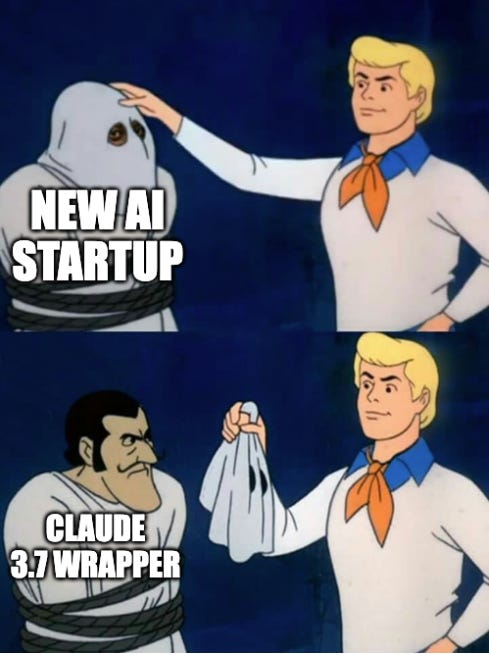
Successful products create “defensible moats” around them: barriers to entry that make it hard to replicate.
In Manus’s case OpenManus was created within days of Manus’s announcement. How popular? How about 33k Github stars in 4 days (cf popular agent framework CrewAI collected 28k stars in 18 months).
But OpenManus any good? WorldOfAI says you can create pretty cool things, albeit it’s a bit slow. Well, OpenManus is precisely 4 days old, so maybe we can wait a few more days to see speed improvements 🤣
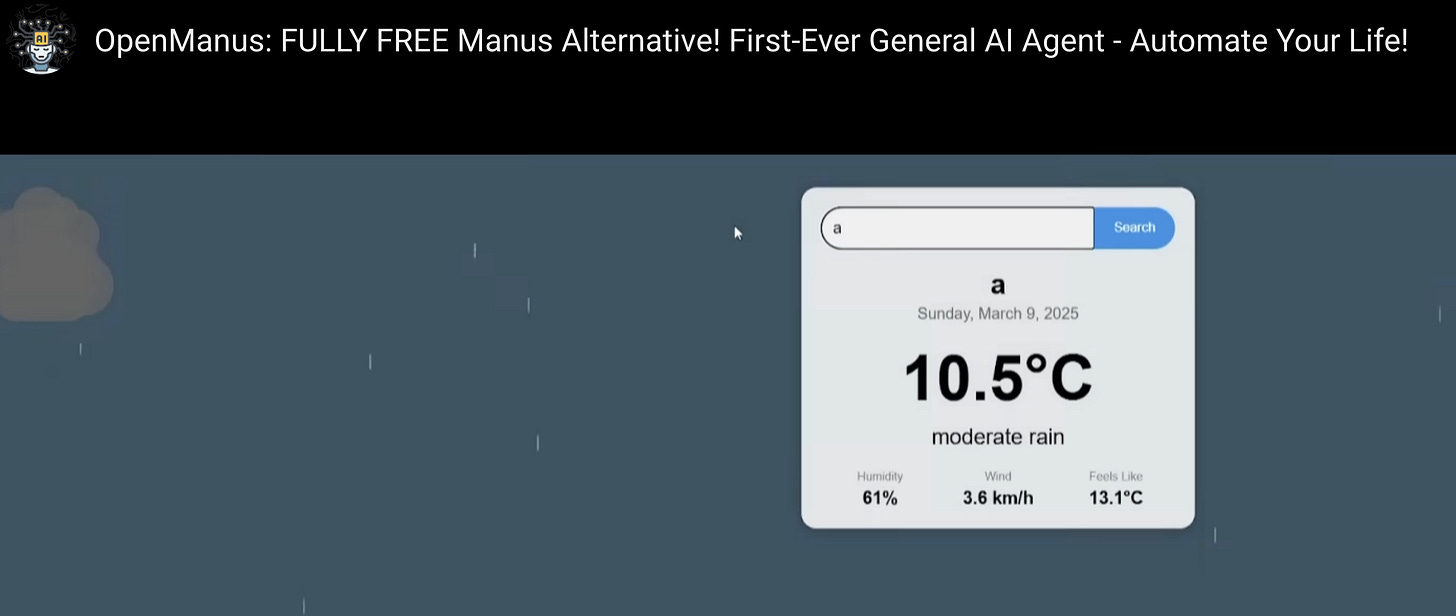
Future of work
UK government wants to replace some civil servants with AI agents. “No person’s substantive time should be spent on a task where digital or AI can do it better, quicker and to the same high quality and standard.”
Speaking of governments: Pentagon to give AI agents a role in decision-making "Accuracy and reliability are core design principles, and maintaining human oversight is critical,"
Google Launches a Data Science Agent: now you can analyse data with plain-English prompts. To be clear it seems to be better thought of as a productivity tool for data scientists as the example prompts were very technical.
Language models: the brain inside AI agents.
You can use language models:
through an API in the cloud, or
hosted locally and privately on your own hardware by downloading the model (or “open weights”).
There were three similar-sized, open-weight model launches recently:
Google launched Gemma 3: contrast Gemma with Google Gemini, its more powerful, API-only language models.
OLMo 2 32B from the Allen Institute (Ai2).
They’re all noteworthy:
Gemma & QwQ are very good performers
Gemma has a larger “working” memory (128k context window vs 32k for Qwen). 128k is is state of the art for open weight models (vs SOTA 2 million for Gemini)
Gemma also score better on important benchmarks that are designed to test their ability to do maths and coding.
OLMo 2 32B is important because it’s fully open source (data, code, and downloadable models) AND Ai2 claim it’s the first fully open source model to beat GPT 3.5 and GPT 4o mini. It’s not clear what the context window is but it’s probably similar to QwQ
🕵️♂️ What I’m looking out for: great quality open weight code generators. A hugely important usage of language models today is code generation, but no open weight models are good enough yet.
🔮 Prediction: when local AI coding agents work well (I expect within 12 months) this will likely significantly reduce the chance of “bill shock” where a software developer finds they burned through $10 of AI Agent credits in a few hours (happened to me! 😱)
Have your say!
Want this to be the best newsletter ever? I’d love to get your feedback.

